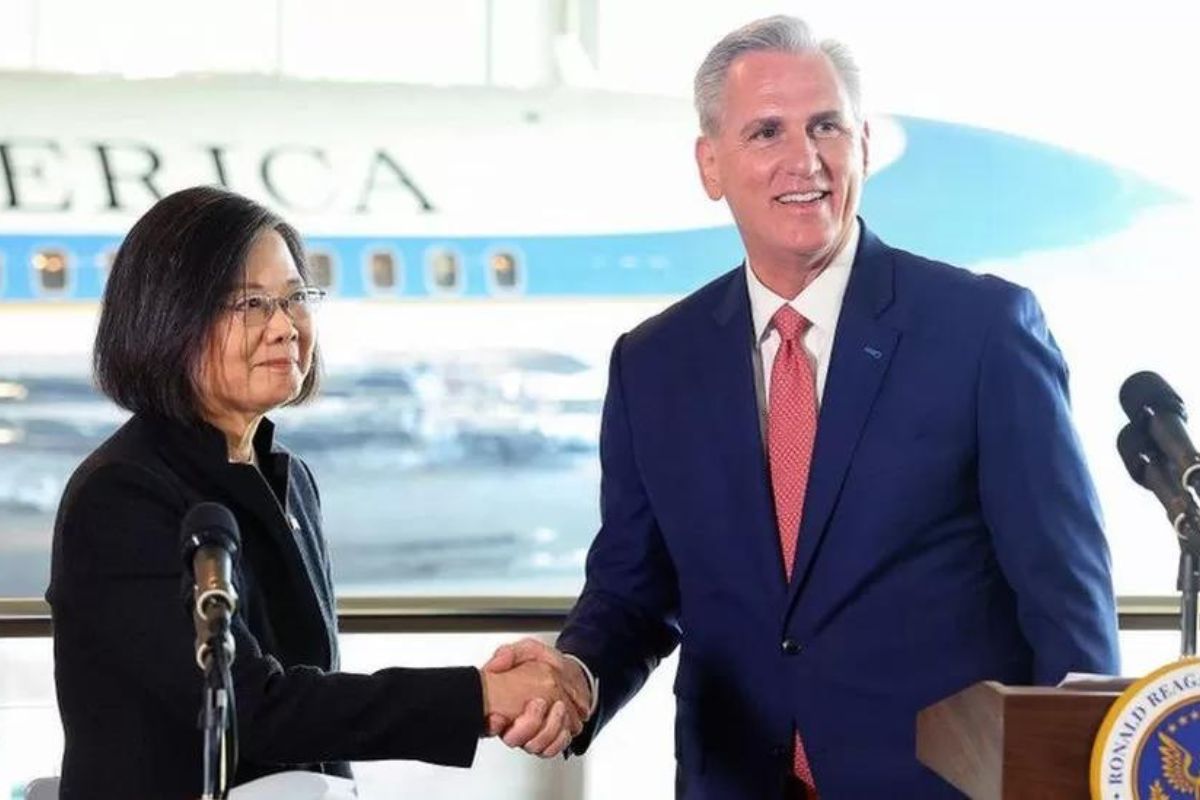While Russian Foreign Minister Sergei Lavrov has predicated any negotiations to end the conflict in Ukraine on the creation of a “new world order”, one that rejects a unipolar world headed by “one hegemon”, the hegemon in question is increasingly proving unequal to the task of providing meaningful leadership to the world.
As the United States of America grapples with domestic problems, not the least of which are provoked by the sideshow staged in Manhattan by former President Donald Trump, and will soon get embroiled in an election for its highest office, its role in world affairs seems to diminish by the day.
Advertisement
The cautiously calibrated visit of Taiwanese President Tsai Ing-wen to America has led to a robust response from Beijing, one that has seen China launch military drills around the islandnation it considers a renegade province. Taking a leaf from the American book, China has also announced sanctions on those involved in arranging a meeting between President Tsai and US House Speaker Kevin McCarthy.
While the sanctions by themselves may be ineffectual, as they prohibit entry of these individuals to China, Hong Kong and Macau and proscribe business ties between them and Chinese entities, they do send a powerful message, one that Americans in the habit of sanctioning others might find difficult to stomach.
China has also deployed Coast Guard ships to board and inspect Taiwanese vessels sailing in the Taiwan Strait, a move that triggered a protest from Taipei and a call on China by Washington to “cease its military, diplomatic and economic pressure against Taiwan and instead engage in meaningful diplomacy.” But diplomacy and dialogue are not on China’s agenda.
A suggestion from European Commission President Ursula von der Leyen that tensions surrounding Taiwan be resolved through dialogue rather than by threats of force, was slapped down brutally by Chinese President Xi Jinping, when he retorted: “Anyone who expects China to compromise on the Taiwan issue is (engaging in) wishful thinking and will only shoot himself in the foot”.
In as firm a rejection of third-party mediation as possible, Mr Xi made it clear that China “will never agree to anyone making a fuss about the one China issue.” That the unipolar world of Mr. Lavrov’s conception no longer exists was made clear equally by a meeting between the foreign ministers of Saudi Arabia and Iran, held under Beijing’s protective gaze last week.
Belying assessments by Western commentators after the two West Asian rivals signed a peace deal last month that the bonhomie would not last because of conflicting interests in the region, the two ministers are said to have put in place plans for a state visit by the Iranian president to Riyadh, while discussing plans to resume flights between the two countries and issue of visas to each other’s citizens.
The “hegemon” is in retreat, and the unipolar world order seems a thing of the past. If these indeed are Russia’s pre-conditions to commence negotiations, it ought to be setting the table.











